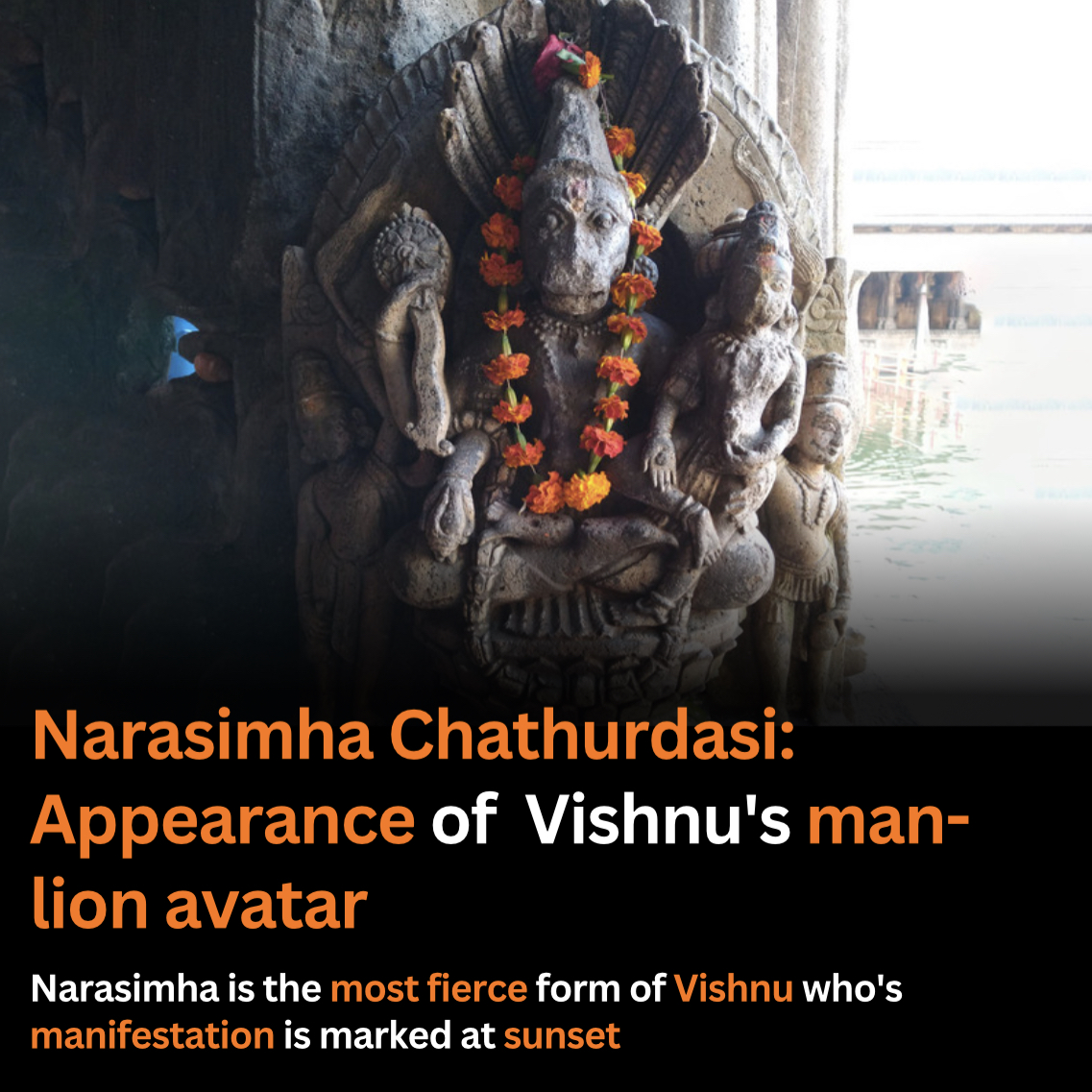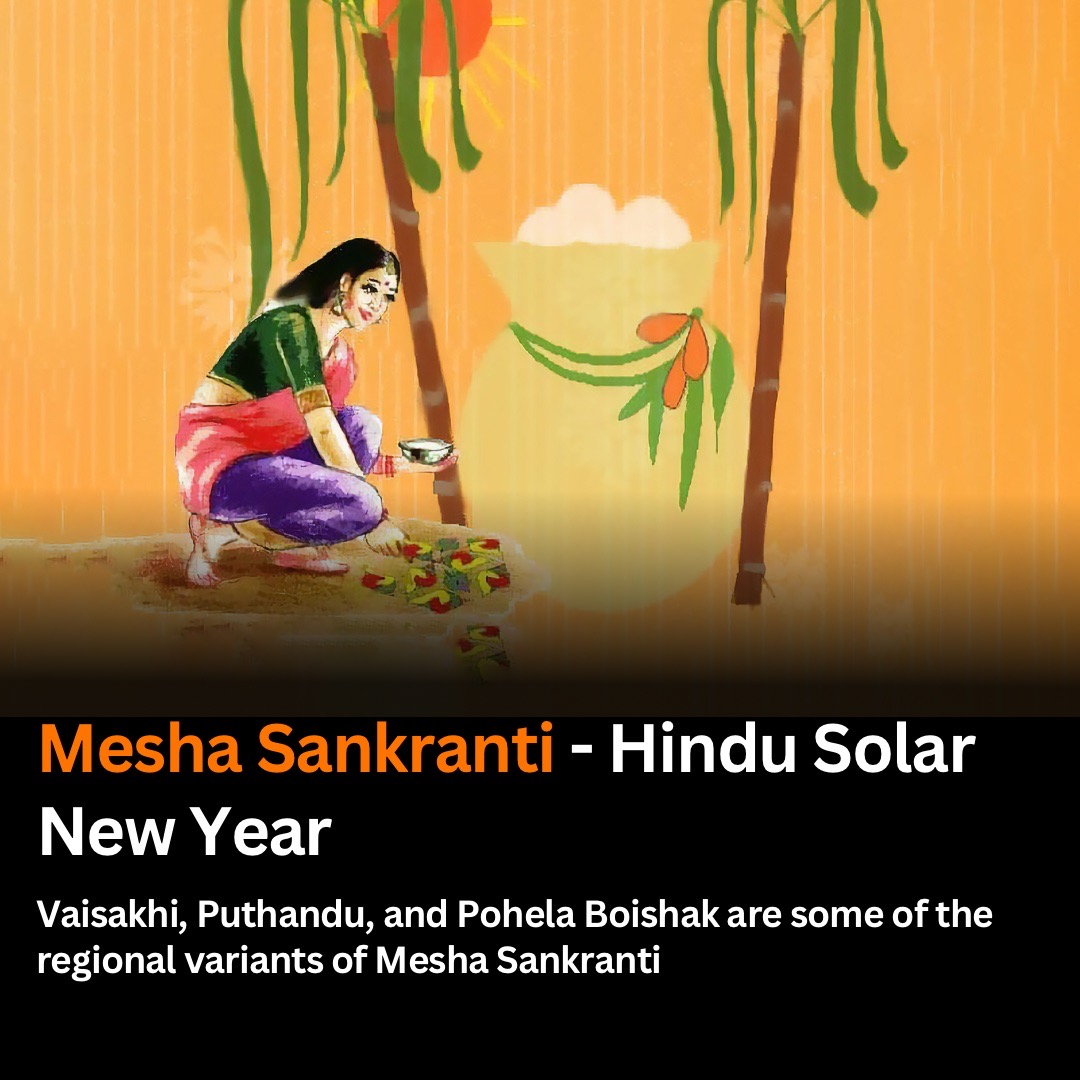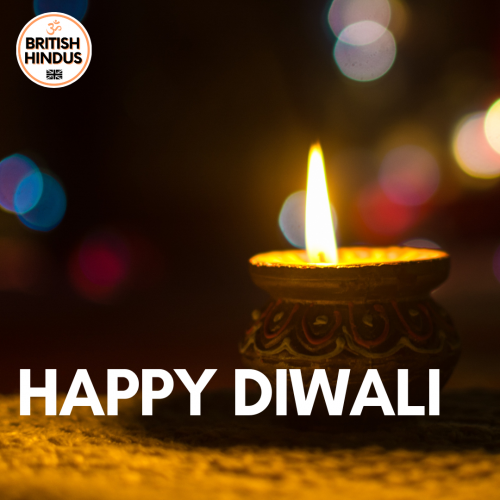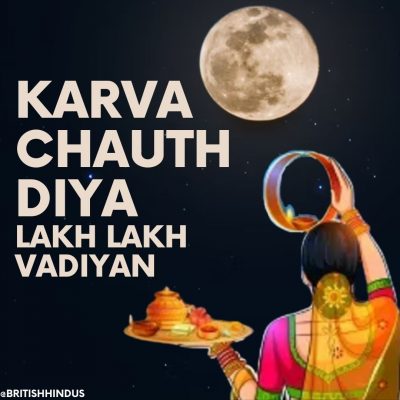Category: Festivals
-

Pitru Paksha – a fortnight of venerating and honouring our ancestors
From 29th September Hindus observe the fortnight (Paksha) of the ancestors (Pitrus). Ancestor veneration is a unique facet of Hinduism and many ancient polytheistic/nature-based religions, where the living offer gratitude to those who preceded them. For Hindus, there are several days in the year when the Pitrus are honoured – Pitru Paksha is the most…
-

Narasimha Chathurdasi: Appearance of Vishnu’s man-lion avatar
Narasimha is the most fierce form of Vishnu who’s manifestation is marked at sunset Narasimha is the half man-half lion incarnation of Vishnu. As one of the most ferocious forms of Vishnu, he is worshiped for destruction of negative energies, protection from calamities and removal of fear. On his appearance day (Vaishaka Shukla Chaturdasi) which is being observed either today or tomorrow*…
-

Mesha Sankranti – Hindu Solar New Year
The Sankranti (transit) of the Sun into Mesha Rashi (Taurus) is celebrated as the New Year by Hindu communities that follow the Sauramana (solar) Hindu calendar. This largely includes the Assamese (Rongali Bihu), Bengali (Pohela Boishak), Bodo (Bwisagu), Maithali (Jur-Sital), Malayalam (Vishu), Odia (Pana Sankranti), Punjabi (Vaisakhi), Tamil (Puthandu) and Tullu (Bisu) Hindu communities. The…
-

The seven themes of Diwali
From all of us at British Hindus, we wish you and your family a happy and prosperous Diwali! To celebrate, we are sharing with you the 7 themes that are central to Diwali. Acknowledging our mortalityThroughout the festival there are many rituals to honour Yama (Deva of death)and the Pitrus (ancestors). Through these observances, Hindus…
-

Karva Chauth Diya
Karva chauth is a festival performed by women in Northern India, carried out for the well-being of their husbands.
